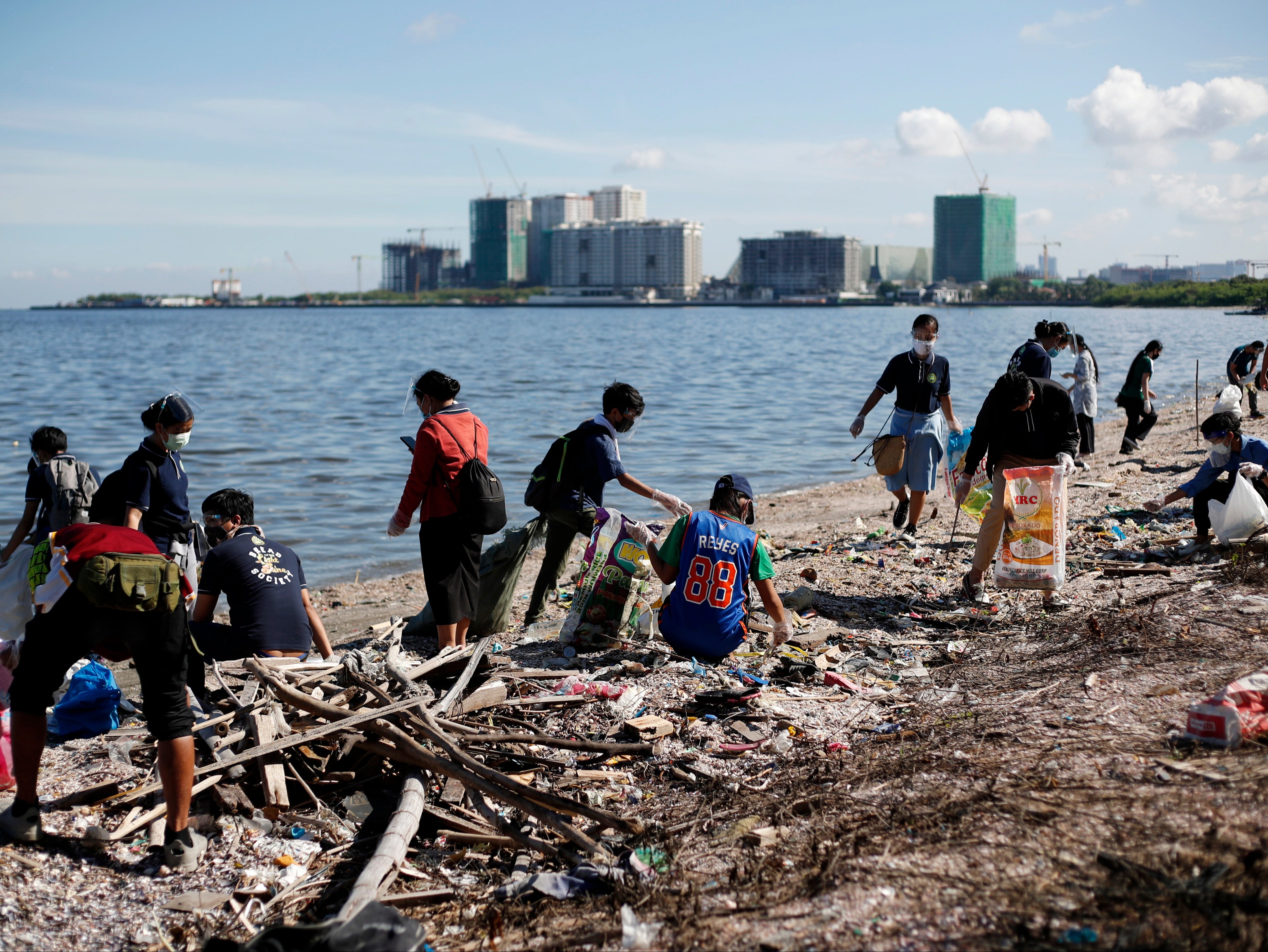Plastic pollution is nearing irreversible tipping point, experts warn
Biodiversity loss, rising temperatures and increased toxicity for oceans and wider society if emissions continue

Your support helps us to tell the story
From reproductive rights to climate change to Big Tech, The Independent is on the ground when the story is developing. Whether it's investigating the financials of Elon Musk's pro-Trump PAC or producing our latest documentary, 'The A Word', which shines a light on the American women fighting for reproductive rights, we know how important it is to parse out the facts from the messaging.
At such a critical moment in US history, we need reporters on the ground. Your donation allows us to keep sending journalists to speak to both sides of the story.
The Independent is trusted by Americans across the entire political spectrum. And unlike many other quality news outlets, we choose not to lock Americans out of our reporting and analysis with paywalls. We believe quality journalism should be available to everyone, paid for by those who can afford it.
Your support makes all the difference.The world may be approaching an irreversible tipping point for plastic pollution, a group of scientists is warning, with impacts for both the environment and wider society.
In an article published inScience, scientists from Sweden, Norway and Germany wrote that there were “enormous” consequences for continuing to throw away plastics, which continue to be “poorly” recycled.
Figures for plastic waste entering the environment by 2025 are in the region of 9 and 23 metric tonnes per year, with warnings that by 2050, the world’s oceans and seas will be filled with more plastic than fish.
Most plastics that are thrown away eventually break down into tiny nano-particles through a process known as weathering, but according to the study, that will be impossible at future rates of waste.
Matthew MacLeod, the lead author of the study, said in an interview with SciTechDaily that while many countries were recycling, “plastic is deeply ingrained in our society, and it leaks out into the environment everywhere”.
Should rates of pollution reach a so-called tipping point, the scientists warn, there will be a collapse of habitats and species loss, and changes to the way in which the ocean removes carbon — which would increase temperatures globally.
”So far, we don’t see widespread evidence of bad consequences, but if weathering plastic triggers a really bad effect we are not likely to be able to reverse it”, said Mr MacLeod of a tipping point. “The cost of ignoring the accumulation of persistent plastic pollution in the environment could be enormous.“
The study argued a reduction in plastic is “the rational policy response” for governments.
“The rational thing to do is to act as quickly as we can to reduce emissions of plastic to the environment,” Mr MacLeod added.



Join our commenting forum
Join thought-provoking conversations, follow other Independent readers and see their replies
Comments